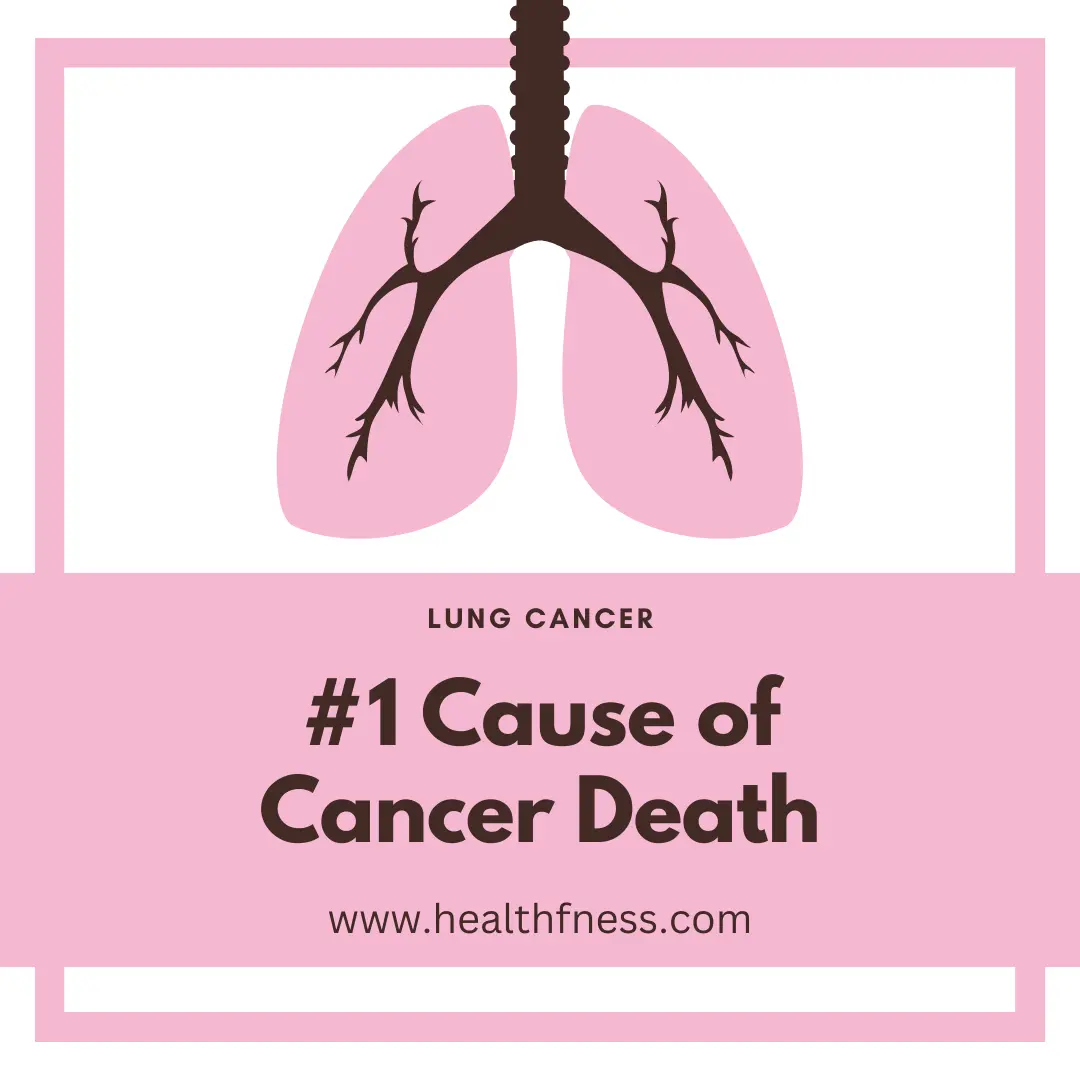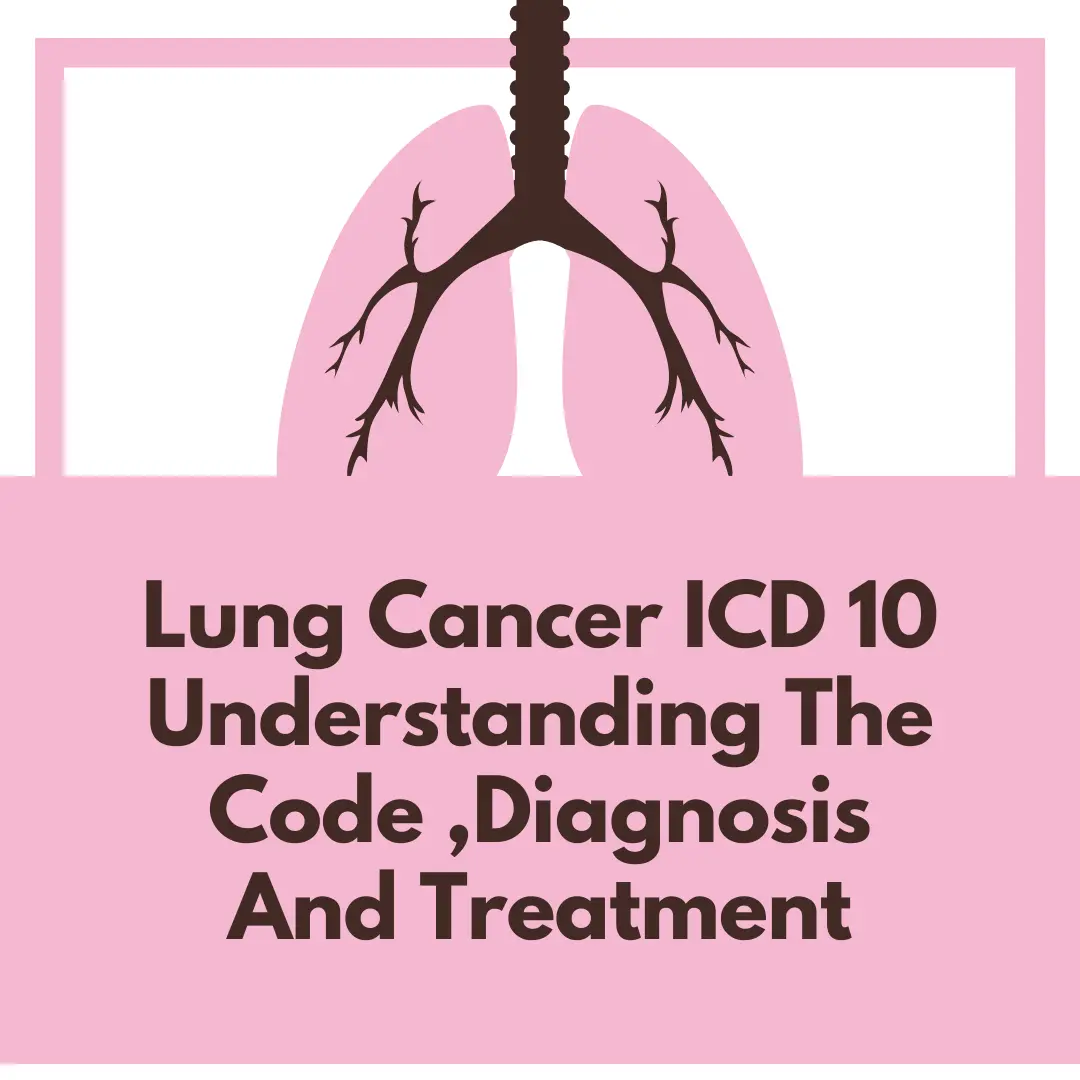Before exploring Lung cancer ICD 10 Code will discuss what is lung cancer. So Lung Cancer is a type of cancer in which abnormal cells start building in the lungs and create a tumor. This tumor disturbs the normal functioning of the lungs and makes breathing difficult. In most cases, lung cancer is diagnosed in the advanced state and it’s very hard to treat cancer at this stage.
What is Lung Cancer ICD 10 Code?
The ICD 10 Coding system is an international coding system in which every disease has its distinct code. The lung cancer ICD-10 code is C34. According to the ICD-10 categorization scheme, this code refers to “Malignant neoplasm of respiratory and intrathoracic organs.” The type and location of the lung cancer can be used to further categorize the C34 code.

Types Of Lung Cancer And Their ICD 10 Codes
Metastatic Lung Cancer ICD 10
The ICD 10 code for Metastatic lung cancer is C78.01.This code is used to indicate that cancer has spread (metastasized) to the lung from another part of the body, such as breast, colon, or prostate cancer.
Non Small Cell Lung Cancer ICD 10
The ICD 10 code for Nonsmall cell lung cancer is C34.3-C34.92. Non-small cell lung cancer (NSCLC) is a type of lung cancer that have numerous subcategories or subtype such as adenocarcinoma, squamous cell carcinoma, and large cell carcinoma. This ICD 10 code range is for different stages and different locations or positions.
You May Also Like To Read: Unlocking the Secrets of a Good Night’s Sleep
Small Cell Lung Cancer ICD 10
The ICD 10 code for small cell lung cancer is C34.0.Small cell lung cancer (SCLC) is a type of lung cancer that typically grows and spreads very quickly which means it’s a dangerous type. This ICD-10 code indicates that cancer originated in the main bronchus or lobe.
Secondary Lung Cancer ICD 10
The ICD 10 code for secondary lung cancer is C78.01.This code is used to indicate that cancer has spread (metastasized) to the lung from another part of the body. Primary cancer can be from any organ, such as breast, colon, or prostate cancer.
Right Lung Cancer ICD 10
The ICD 10 code for right lung cancer is C34.2.This code indicates that the cancer is located in the upper lobe of the right lung. There are different ICD-10 codes for different locations within the lung, and the code may be further specified to indicate the stage of cancer.
You May Also Like To Read: What You Need To Know About Diaphoresis
Causes Of Lung Cancer
There is a lot of reason which develop this deadly disease. Every year worldwide lot of deaths occur due to lung cancer.
Smoking
Smoking is the most frequent cause of lung cancer. Smoke from cigarettes contains dangerous compounds that can destroy lung tissue and cause cancer.
Exposure To Secondhand Smoke
Passive smoking, commonly known as secondhand smoke, increases the risk of lung cancer.

Radon Gas
The naturally occurring petrol radon can accumulate in homes and other structures. Long-term exposure to radon at high levels can raise the chance of developing lung cancer.
Workplace Exposure
Asbestos, arsenic, and diesel exhaust are just a few of the pollutants that might increase your risk of developing lung cancer.
Air Pollution
Long-term exposure to air pollution, particularly in cities, has been associated with a higher risk of lung cancer.
Family History
Lung cancer may occasionally result from an inherited genetic mutation that raises the risk of getting the illness.
You May Also Like To Read: Wellness Guide 101 Tinnitus: What You Need To Know About It?
Symptoms Of Lung Cancer
The symptoms or signs of lung cancer can change depending on the stage and type of cancer, as well as other individual factors. Some common symptoms of lung cancer include:
Continuous Coughing
A cough that lasts for several weeks or becomes worse over time can be a sign of lung cancer. But if the cough is only for a few days now take it normally.
Chest Pain
Pain in the chest, back, or shoulders that doesn’t go away can be a symptom of lung cancer.
Wheezing
Lung cancer may cause a high-pitched whistling sound when breathing.
Shortness Of Breath
Breathing problems or shortness of breath, particularly when exercising, may indicate lung cancer.
Hoarseness
A change in the voice, such as hoarseness or raspy voice, can be a sign of lung cancer.
Appetite Loss
A loss of appetite or weight loss without effort may be an indication of lung cancer.
Swelling
Swelling is a sign of lung cancer and can manifest as edema of the face, neck, or neck veins.
It’s crucial to remember that not everyone with lung cancer exhibits these symptoms, and some people who do may not have the disease.
Diagnosis Of Lung Cancer
The diagnosis of lung cancer usually involves several steps, including:
Medical History And Physical Exam
When a person goes to a doctor the doctor will do a physical examination and also ask about previous medical history and symptoms the person is experiencing.
Biopsy
During a biopsy, a tiny sample of lung tissue is removed and examined under a microscope to check for the presence of cancer cells.
Staging
In staging the doctor determines the extent of cancer, including whether it has spread beyond the lungs to other parts of the body. Staging helps determine the most appropriate treatment plan.
Molecular Testing
Molecular testing involves analyzing the cancer cells to identify specific genetic mutations or other characteristics that may affect treatment options.
Treatment Of Lung Cancer
The type and stage of cancer, as well as the patient’s general health and preferences, all influence how lung cancer is treated. Therapy choices could be:
Surgery
Surgery is often the very first treatment for early-stage lung cancer. It involves eliminating the lungs’ cancerous tissue. The location and size of the tumor will determine the type of surgery.
Radiation Therapy
High-energy radiation is used in radiation treatment to destroy cancer cells. It can be used both independently and in conjunction with other therapies.
Chemotherapy
Chemotherapy uses medications to destroy cancer cells. It can be used both independently and in combination with other therapies.
Palliative Care
Palliative care is a sort of supportive care that focuses on increasing the quality of life for persons with advanced or terminal lung cancer. Therapy plans will be created specifically for each person’s requirements and circumstances and may include a combination of these and other therapies. Working together with your medical team will help you choose the most effective course of therapy.
FAQS Section:
What is the ICD-10 code for lung cancer diagnosis?
The ICD-10 code for lung cancer diagnosis is C34.
What are the ICD-10 codes for history of lung cancer?
The ICD-10 codes for history of lung cancer include Z85.118 (Personal history of malignant neoplasm of bronchus and lung) and Z85.828 (Personal history of other malignant neoplasm of lung).
Conclusion
Lung cancer is when abnormal cells start building in the lungs, creating a tumor or cancer. The lung cancer ICD-10 code is C34. There are several types of lung cancers depending on the position and size of the tumor. Causes of lung cancer are smoking, radon gas, workplace exposure, and family history. Symptoms of lung cancer are chest pain, coughing, wheezing, and shortness of breath. Lung cancer treatment includes surgery, radiation therapy, chemotherapy, and palliative care.
Video Credits:
If you have any confusion or questions related to this topic do Let Us Know😊

Dr. Mark Jenkins, MD - General Physician (California, USA)
Dr. Mark Jenkins is a board-certified general physician based in the United States, specializing in preventive medicine, nutrition, and lifestyle health. With years of clinical experience in primary care, he is dedicated to helping patients and readers alike make informed, science-based decisions about their well-being.
As a trusted medical reviewer and contributor to Healthfness.com, Dr. Jenkins ensures that all health content meets the highest standards of accuracy, safety, and evidence-based medicine. His expertise bridges modern medical science with practical, everyday wellness strategies, making complex topics approachable for all audiences.
Outside the clinic, Dr. Jenkins is passionate about living the healthy lifestyle he teaches. He enjoys hiking with his dog, experimenting with vegetarian cooking, and exploring the latest health research. He believes that small, consistent lifestyle changes lead to lasting health improvements, and he aims to inspire readers to take proactive steps toward a healthier, happier life.
Explore more of Dr. Jenkins’ evidence-based insights at Healthfness.com



